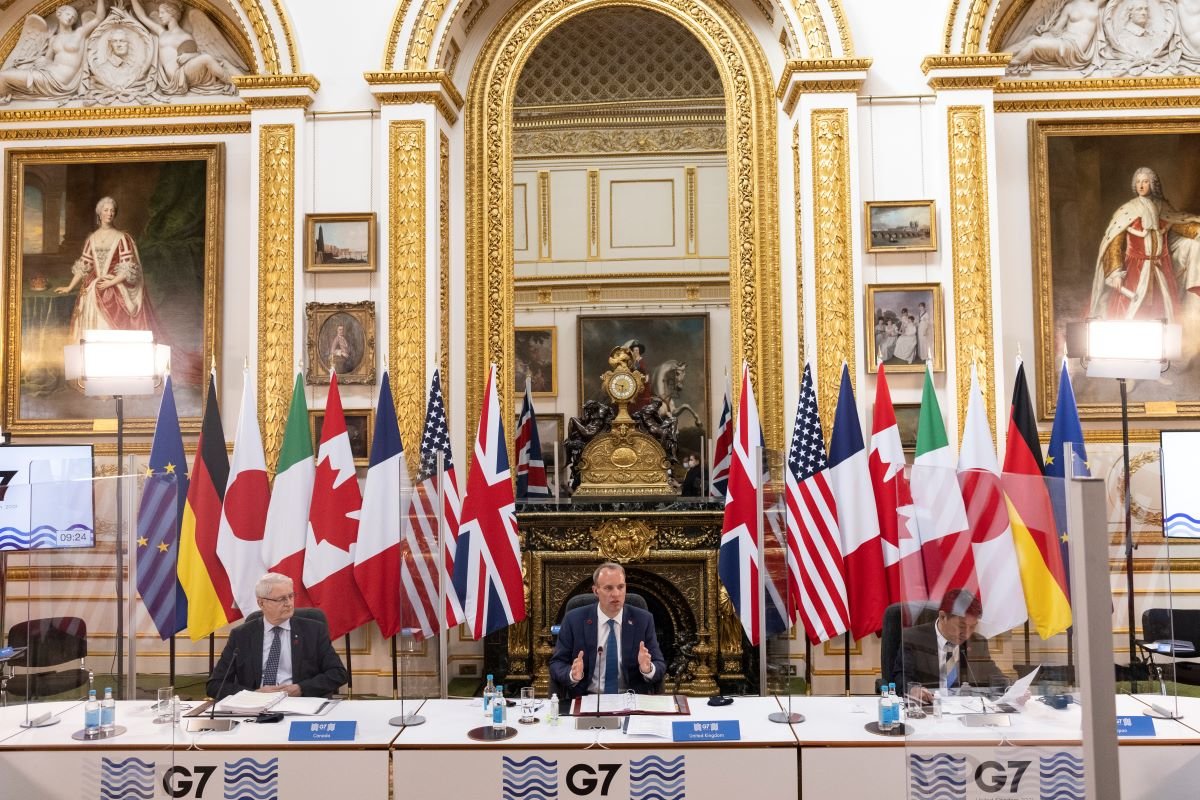- G7 Climate and Environment ministers have agreed align policies with the goal of limiting temperature increase to 1.5°C.
- E3G experts welcome progress but pressure is now on G7 finance ministers and leaders to unlock international climate finance for developing countries, supporting green recovery, and addressing the concurrent crises around debt and vaccines access.
Story
The G7 is the main political opportunity this year to relaunch global coordination between major powers, and to build global solidarity around tackling the three interconnected global challenges of health, climate and economic recovery.
Today, G7 Climate and Environment ministers agreed to make ambitious and accelerated efforts to reduce emissions to keep the 1.5°C limit within reach, including setting 2030 emissions targets in line with net zero.
G7 Climate and Environment ministers agreed to phase out new direct government support for international fossil fuels, beginning with a commitment to take concrete steps towards an absolute end to all new international finance for unabated coal power by the end of 2021, and to accelerate the transition away from unabated coal and to an overwhelmingly decarbonised power system in the 2030s.
The G7 have also agreed to put climate and nature at the heart of economic recovery and reaffirmed a shared commitment to jointly mobilise $100bn annually through to 2025 to support developing countries.
Attention now turns to G7 finance ministers’ and G7 leaders’ meetings in early June to deliver further outcomes for climate, as well as global recovery from COVID-19, to raise pressure for more ambition ahead of COP26.
G7 cooperation is crucial to building the trust and international solidarity we need ahead of COP26. Today’s G7 meeting is the first opportunity to build a rhythm on climate finance from the G7 to the G20 to land green recovery and climate finance pledges in the July Venice G20 climate summit and finance ministers meeting.
Quote
Jennifer Tollmann, E3G Climate Diplomacy expert said:
“Today’s meeting is a step change from the Trump-era G7. It lays the foundation for these countries to become an engine for keeping 1.5 degrees, and safe levels of climate change, in reach by COP26 and beyond.
“But for that to happen, the pressure is now on G7 finance ministers and leaders to address the concurrent crises faced by the developing world. They must come good on solidarity – on vaccines, debt and concrete additional support for green recovery and climate adaptation. Ambitious climate action requires a healthy, just and truly global recovery.”
Maria Pastukhova, E3G Energy Diplomacy expert said:
“The G7 commitment to phase-out international fossil fuel finance is a bold and ambitious step in the right direction.
“Developing a timeline to end all fossil fuel finance well before 2025 and significantly increasing capital investments to support green transitions are clear credibility tests going into the G7 Leaders’ Summit.
“But the G7 must go further still. To keep 1.5°C in reach, the IEA have said there can be no new oil and gas exploration. Phasing out all investments in new fossil fuel supply this year is the logical conclusion of today’s G7 communique.”
Julian Havers, Programme Lead Public Banks and Just Transition at E3G said:
“Despite a recognition of the need for new climate finance commitments ahead of COP26, no strategic offer towards developing countries and their post-COVID recovery needs is visible as we approach the G7 Leaders’ summit in June.
“The G7 call for all Multilateral Development Banks to develop timelines for their Paris alignment is important, but can only be one part of that offer. We now enter a critical stretch where more detailed plans for Multilateral Development Banks to increase their fire-power will be needed.”
Chris Littlecott Director of Fossil Fuel Transition programme at E3G said:
“For the first time ever the G7 has noted explicitly that coal is a problem that needs to be solved, urgently. Ministers have recognised that the phase out of unabated coal power generation is already underway but must be accelerated, so that power systems can be ‘overwhelmingly decarbonised’ during the 2030s. This responds to the IEA’s analysis that unabated coal power generation must end by 2030 to enable net-zero emissions electricity by 2035 in advanced economies. The G7 is home to 68% of OECD and EU coal capacity, so where they lead others must follow. This lays bare the challenge for major coal users such as upcoming G7 guests Australia and South Korea.”
“G7 Climate and Environment ministers have also stepped up on international coal finance, calling for it to STOP NOW. They recognise that “continued global investment in unabated coal power generation is incompatible with keeping 1.5°C within reach” and committed that they will take concrete steps to end any remaining international coal finance by the end of 2021, across the full range of financial instruments. This means that the world’s #2 coal financier Japan has agreed to cease its provision of finance. Japan should start by funding clean energy projects in Bangladesh and Indonesia instead of the two coal power projects currently under consideration. With this announcement coming a month after South Korea announced an end to coal finance, the G7 have increased the pressure on China to stop its multiple financial flows to overseas coal projects and instead help shift the world from coal-to-clean energy.”
“The G7 ministers have agreed to cooperate on accelerating their own domestic power sector transitions and to supporting the global coal-to-clean transition. They will work with the IEA, Powering Past Coal Alliance, COP26 Energy Transition Council and others to identify and implement solutions, including supporting new approaches to finance the retirement of coal power plants. This is a comprehensive and substantial package of measures that puts the G7 on track to consigning coal to history by COP26.”
Alden Meyer, Senior Associate at E3G said:
“Today’s communique marks a watershed moment in the transition to a net zero emissions global economy, as all G7 countries are firmly behind the drive to keep 1.5 degrees C within reach. But much remains to be done to turn these promises into action, both in putting more ambitious domestic policies in place and in substantially scaling up the resources needed to enable the transition away from fossil fuels in developing countries. This work now falls to G7 leaders to address at their Cornwall summit in June.”
Available for comment
Maria Pastukhova, Jennifer Tollmann, Julian Havers and Chris Littlecott are available for commentary – please contact them directly:
Maria Pastukhova
m: +49 (0) 157 779 195 58 | Maria.Pastukhova@e3g.org
Jennifer Tollmann
m: +49 (0) 151 730 19723 | jennifer.tollmann@e3g.org
Julian Havers
m: +49 (0) 1602120435 | julian.havers@e3g.org
Chris Littlecott
m: +44 7920 461812 | chris.littlecott@e3g.org
Alden Meyer
m: +1-202-378-8619 | alden.meyer@e3g.org



